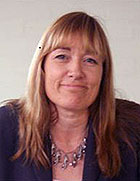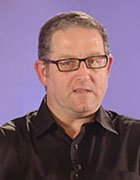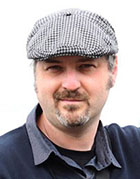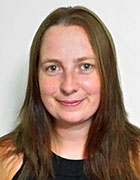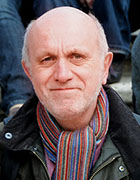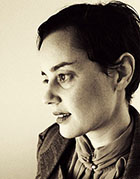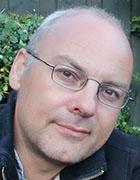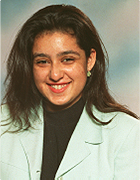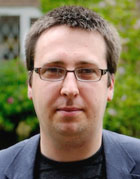Jason Pitt
Jason Pitt started teaching nine years ago after graduating with a BEng(Hons) in Computer Science/ Software Engineering. He is now Head of Computing at King Edward VI Camp Hill School for Boys in Birmingham. He carries out a wide variety of work for OCR related to their Entry Level, GCSE and A-Level courses. He is also currently contributing to several Computing textbooks. Alistair Surrall
Alistair Surrall is Head of Computing & New Technologies at The Cooper School in Bicester. He has been teaching for a number of years, applying his First Class BSc in Computer Science and MA in Technology & Education to his classroom practice. Last year he was appointed as CAS Master Teacher for Oxfordshire and won the Business Times Innovation in ICT award. As a Google Certified Individual he has run a number of popular training days on subjects from Python to Google Apps. You can see what’s happening in his lessons by visiting www.learningcomputing.co.uk or following @surrall. Laura Dixon
I am Head of Computing and ICT at the Royal High School, Bath. I have a degree in Computer Science from the University of Bath and prior to training as a teacher I used to work as a web developer. I am interested in investigating new ways of learning about Computer Science and improving the delivery and perception of education in this field. I also write a blog and work on the CAS #include project - (http://casinclude.org.uk/) - which aims to challenge stereotypes and improve the diversity of students studying Computing in the UK. Christine Swan
Christine is Director of ICT and Enterprise at The Stourport High School and Sixth Form Centre which was recently assessed as Outstanding by Ofsted for the second time. She has over twenty years teaching experience in the Secondary and FE /HE sectors. Christine was a Senior Lecturer in Computing for ten years and ran successful programmes such as the Cisco Networking Academy, Higher National Diploma and Advanced Apprenticeship for IT Professionals before returning to school teaching. She ran an LSC funded IT Professional Cluster Group within the West Midlands area. Always passionate about teaching Computing, Christine has been involved in the teaching of programming for most of her career. She is also actively involved in qualification and resource development, most recently the Cambridge Nationals and GCSE Computing. She currently teaches GCSE and GCE Computing and in her spare time, she enjoys making gadgets with Raspberry Pi and Arduino as well as developing fiendish programming challenges for her students. Clive Beale
Clive Beale is the Director of Educational Development for the Raspberry Pi Foundation. He trained as a biologist and spent several years at the Royal Botanic Gardens, Kew before becoming a teacher in 2003. For the next ten years he taught ICT and Computing at secondary school before joining the Raspberry Pi Foundation in February 2013. Clive's main areas of educational interest are teaching computing in primary school and learning through practical computing. He is an avid Maker and his house is cluttered with his (mostly half-finished) projects such as power kites, telescopes and robots. Ilia Avroutine
Ilia Avroutine teaches A level Computer Science at a Grammar School in Buckinghamshire. He has taught A level Computer Science for 5 years having previously taught Computing in Canada and he co-leads the CAS Bucks Teacher Hub and has run a number of training events for teachers of Computing through OCR and other organisations. Julie Hodgson
Julie has been a teacher for 7 years and is currently a curriculum leader for ICT and Computing in a secondary school in London. Julie has run several training sessions across the country for OCR including: Introducing Entry Level Computing, bridging the gap between ICT and Computing, and introducing Python programming. Julie is also an OCR Examiner, Reviser, Developer and Moderator for Entry Level and GCSE Computing. David Waller
David Waller is a teacher of IT and computing at KS3, GCSE and A levels and vocational qualifications such as GNVQ and DiDA. A former executive of ACITT, he is an experienced author of textbooks, teacher resources, revision materials and online publications and activities. Genevieve Smith-Nunes
A Computer Science Creative in the South East of England. She values the experience and knowledge gained from working with professionals across all phases of education and industry. She is an advocate for including programming in the curriculum and believes you are never too young to learn about Computer Science. She is on the Department of Educations’ expert group for Initial Teacher Training for Computing. She has volunteered in a number of local primary schools, teaching programming to 6yr olds. Genevieve regularly runs small and large scale hack events such #dancehack at the Brighton Digital Festival 2013 dance meets data. She has also founded a social enterprise readysaltedcode.org. This has been set up to inspire and engage people to in creative digital making, and supports their future development participation through our partner network, community-based education and events/training. Computer Science should have a creative aspect "STEAM" not just "STEM". John Kershaw
John Kershaw is a teacher from Bradford who's been coding since he was a nipper. He's thrilled to bits to be helping OCR to "Get Britain Coding", having worked in a number of 'tech' related industries including a bank & a printing company, before joining the teaching profession. Shahneila Saeed
I studied Computer Science as a subject until my degree, where I switched to complete an undergraduate degree in BSc (Hons) Psychology. I obtained my teacher qualification at Kings College, London and began my NQT year at Graveney School in 1999, where I still work today as the Head of Computing. Computing is a subject that both excites and enthrals, it is this passion which I want to ignite within my students. I joined CAS (Computing at Schools) in 2008 and since then have worked with them on several projects. Within my own school we have been teaching Computing at KS3 for several years now, and were one of the first 100 pilot schools to deliver the OCR GCSE Computing course. This GCSE is now a popular option subject at KS4, taught both during the day and as a twilight subject. One of our more recent initiatives is the formation of a Computer Science Research Group. This group is made up of students from all year groups and staff (from various departments) and its aim is to provide students with a forum to carry out research in their area of interests. Our current focus is using the Raspberry Pi’s. |
 Cambridge GCSE Computing Online is designed to support teaching and learning in this dynamic area of the school curriculum. It is the vision of the Cambridge-based collaboration between exam board OCR and Cambridge University Press. This innovative Cambridge GCSE Computing project taps into the recognised expertise in this field within Cambridge to drive forward educational excellence in the UK and internationally.
Cambridge GCSE Computing course comprises of learning episodes based on OCR’s GCSE in Computing. The GCSE was launched in 2010 in response to demand for a greater emphasis on computing and programming skills in schools. The Getting Started course for GCSE Computer Science MOOC offers material that is aligned to our Computer Science for OCR student book and offers an ideal taster to the content students will cover during their GCSE course. In total, Cambridge GCSE Computing Online features over 350 videos, written and presented by computer science experts and teachers, covering topics from GCSE Computing and Computer Science. The online learning episodes – made up of short videos and supporting resources – can be used by learners in the classroom, as revision aids, or as self-teaching resources for flipped classrooms, or for a mixture of all three. We would like to thank Raspberry Pi for their help and involvement in creating the video content for GCSE Computing course. Each video will be supported by Cambridge University Press teaching and learning resources to create a single course of study for GCSE Computing. No OCR GCSE Computer Science certificate will be available direct through the Cambridge GCSE Computing Online website but the content will help learners prepare for the exam. |

